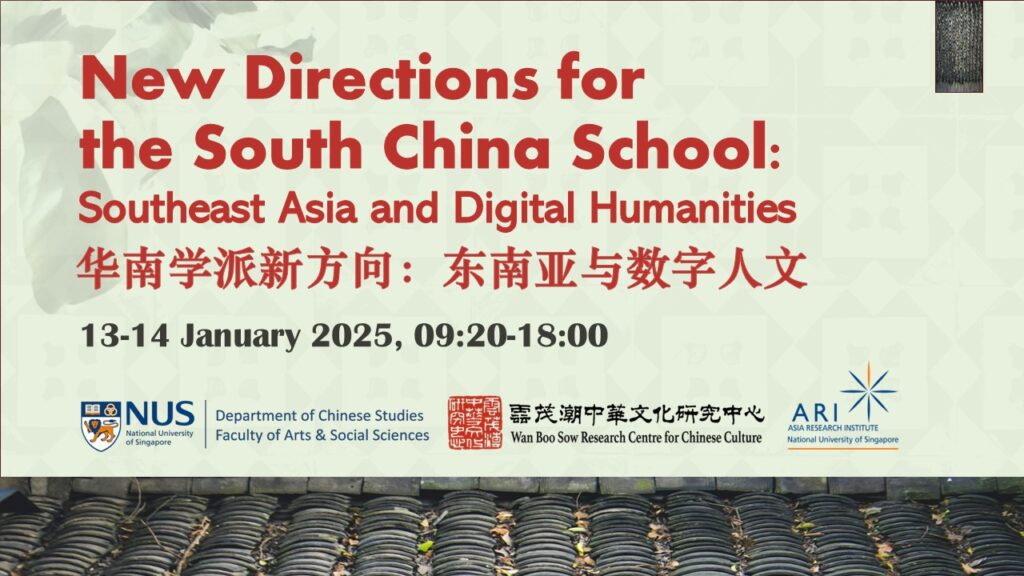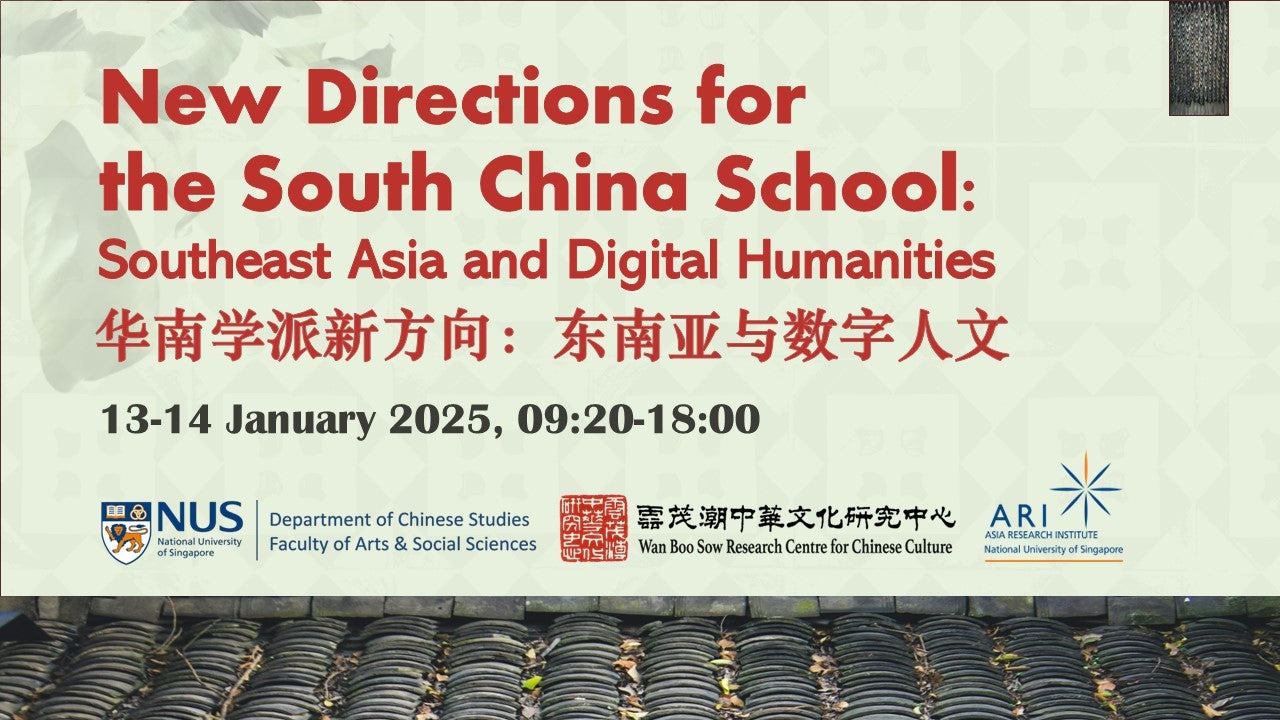Events
New Directions for the South China School: Southeast Asia and Digital Humanities
| Date | : | 13 Jan 2025 - 14 Jan 2025 |
| Venue | : | AS8, Level 4, Seminar Room 04-04 |
| Contact Person | : | YEO Ee Lin, Valerie |
| Poster | ||
This workshop is organised by the Wan Boo Sow Research Centre for Chinese Culture at the National University of Singapore (NUS) and supported by the Asia Research Institute, NUS.
The South China School of Chinese History (Huanan xuepai) combines historical research methods with the anthropology of ritual forms and everyday life still found in rural villages in Fujian and Guangdong. Through the discovery of local historical materials beyond traditional archives, this group of scholars has raised new questions about local identity and the reach of the state. The publications of the Huanan xuebai are numerous and influential, and the methodology proposed by the school members pioneered in Chinese studies has had a lasting impact on the understanding of Chinese history and culture. The origins of this approach to Chinese history from below, and the complex engagement of local society with the state goes back to Republican period folklore and ethnography, and to the pathbreaking socio-economic historical research of Liang Fangzhong and Fu Yiling. The school has emphasized the importance of gathering, analysing and publishing local historical materials.
In the past few years, major collections of local materials have been published, including the voluminous Yongtai materials in Fujian edited by Zheng Zhenman and the survey materials on Guangdong villages collected by the South China Rural Research Center of Sun Yat-sen University. Major new books have been published in recent years, including Liu Zhiwei and Sun Ge’s philosophic dialogue on the meaning and importance of local, regional and trans-local historical research, and Chen Chunsheng’s magisterial overview of the history of the Han River basin and Chaozhou regional culture. Early leaders of the Huanan school, such as David Faure, called for moving beyond Guangdong and Fujian to examine broader patterns of cultural development and assimilation across China and beyond. Recent publications covering the Southwest, Jiangxi, Huizhou, Shanxi, and many other areas show how the school has expanded beyond the original areas of inquiry. Scholars from Taiwan will discuss the impact of these approaches on Taiwan history. Michael Szonyi’s recent book on The Art of Being Governed, explores cases from across China. Choi Chi-cheung has examined transnational business networks and the localization of ritual practices in Southeast Asia. Zheng Li has published on the movement of Xinghua ritual traditions across Southeast Asia.
This workshop will reflect on the achievements and ongoing promise of 40 years of research of the Huanan (and beyond) school of historical anthropology. We will also explore ways its unique methods and questions could open up the study of the Chinese diaspora in Southeast Asia. We will discuss alternative modes of storing historical documents and data in digital platforms, as well as the continuing challenges and limitations of digital humanities.
REGISTRATION
This in-person workshop is open to the NUS community (staff and students) and invited guests. For further enquiries, please write to valerie.yeo@nus.edu.sg.
WORKSHOP CONVENORS
Prof Kenneth DEAN
Director, Wan Boo Sow Research Centre for Chinese Culture at the Department of Chinese Studies, National University of Singapore
Leader, Religion and Globalisation Cluster, Asia Research Institute, National University of Singapore
Assoc Prof ZHENG Li
Visiting Fellow, Department of Chinese Studies, National University of Singapore



